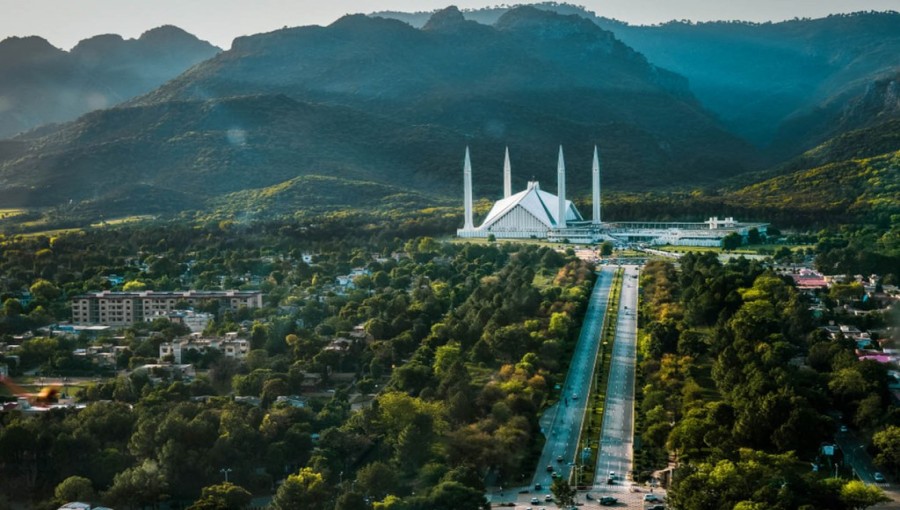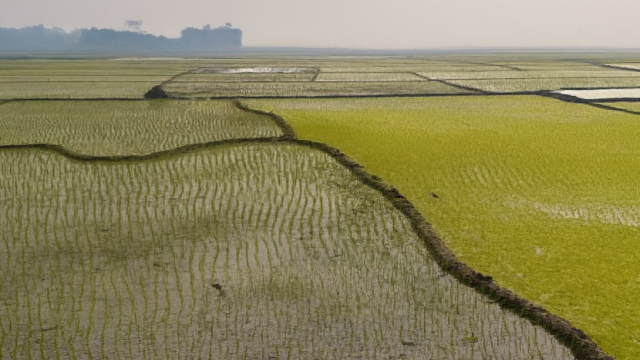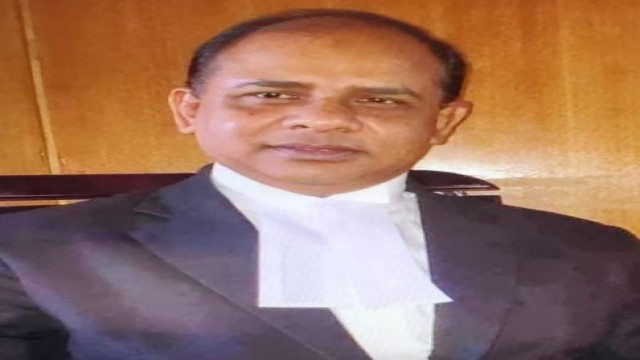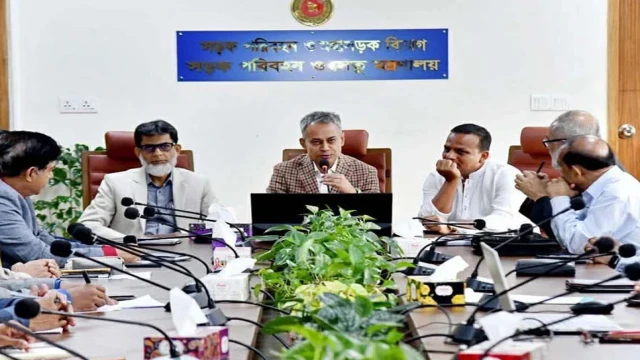The Faisal Mosque, a stunning landmark in Islamabad, is more than just a place of worship. Named in honor of King Faisal of Saudi Arabia, it’s a beacon of Islamic heritage and modern design, reflecting Pakistan’s dynamic role in the Muslim world. With its history intertwined with the Margalla Hills, the mosque is a modern architectural marvel that symbolizes the unity and spiritual depth of Islam. It stands as a profound emblem of the faith’s rich traditions and its place in contemporary society, inviting us to appreciate its historical and cultural significance.
A Gift of Friendship: The Mosque's Origins
The Faisal Mosque’s story began in 1966 with King Faisal bin Abdul-Aziz of Saudi Arabia’s visionary support for Pakistan’s national mosque. Recognizing Islamabad’s need for such a symbol, he pledged to fund its construction, cementing Saudi-Pakistani friendship. The international design competition of 1969 was won by Turkish architect Vedat Dalokay, whose concept was inspired by the fluidity of a Bedouin tent. His innovative and deeply symbolic design led to the mosque’s construction in 1976 and its completion in 1986, marking a historic milestone in Islamic architecture and symbolizing unity and innovation.

Architectural Ingenuity of the Faisal Mosque
Vedat Dalokay’s design for the Faisal Mosque marked a departure from traditional mosque architecture, eschewing domes and minarets for an eight-sided concrete shell that mirrors a Bedouin tent. This was a purposeful nod to the simplicity and hospitality emblematic of Bedouin life, as well as the nomadic origins of Islam. The mosque’s main prayer hall, a vast space capable of accommodating 10,000 worshippers, is flanked by four slender, towering pillars that stretch 90 meters high, reminiscent of Turkish mosque designs.

The Faisal Mosque’s octagonal structure and its minarets, which reach a height of 260 feet, represent a bold fusion of traditional Islamic elements with modern design principles. The entire complex is designed to welcome up to 300,000 devotees, embodying a sense of spiritual tranquility and architectural magnificence that resonates with both worshippers and admirers of Islamic art.
Read: Unveiling the Mystery
The Faisal Mosque: A Beacon of Islamic Learning and Unity
The Faisal Mosque, Pakistan’s premier national mosque, is not only a center for religious worship but also a hub for intellectual and cultural exchange. Managed by the International Islamic University, it champions Islamic education and symbolizes the strong ties between Pakistan and Saudi Arabia. More than a religious site, the mosque embodies unity and tolerance, inviting people of all faiths to appreciate Islamic art and culture.
Read: The Great Mosque of Kairouan
Simultaneously, the mosque’s striking design makes it a central gathering place for Pakistani Muslims. As the largest mosque in the nation, it can host up to 100,000 worshippers. Its expansive prayer hall unites Muslims from diverse backgrounds in prayer and reflection. The mosque’s affiliation with an Islamic University underscores its role in promoting Islamic learning and community spirit. The Faisal Mosque transcends its function as a mere place of worship; it stands as a monument of national solidarity and a proud emblem of Pakistan’s Islamic tradition.
Embracing Modernity: The Faisal Mosque's Architectural Statement
The Faisal Mosque's contemporary design initially stirred discussions among traditionalists. Yet, it stands today as a harmonious blend of age-old traditions and modern innovation. The choice of concrete as a building material signifies the progressive transformation of Islamic architecture. Its open and minimalist design instills a tranquil atmosphere that embraces all visitors, regardless of their religious beliefs. The mosque thus acts as a conduit between the time-honored values of Islam and the contemporary era, showcasing the religion's adaptability and relevance in today's world.

Faisal Mosque: A Symbol of Islamic Solidarity and Interfaith Harmony
The Faisal Mosque transcends its architectural grandeur, encapsulating the dreams and shared legacy of Muslims worldwide. As a symbol of Islamic unity, it nurtures respect and understanding across various cultures and traditions. The mosque’s welcoming stance towards non-Muslims reflects the inclusive and peaceful teachings of Islam, affirming its role as a haven for spiritual growth and interfaith communication.
Read: A Testament to Cultural Harmony and Architectural Brilliance
This iconic mosque, completed in 1986, is a legacy of King Faisal’s generosity, offering a magnificent place of worship and reinforcing the Saudi-Pakistani alliance. It stands as a durable monument to interfaith collaboration and the promotion of Islamic values internationally, showcasing the mosque’s significance beyond its physical structure.
Looking Forward: A Mosque for the Future
The Faisal Mosque remains an inspiration for Muslims around the world. Its distinctive design and emphasis on unity exemplify modern Islamic architecture. As a popular tourist spot, it underscores its role as a conduit between Islam and the broader world. With the ongoing evolution of Pakistan and the Islamic community, the Faisal Mosque symbolizes faith, progress, and the lasting influence of architectural ingenuity.
In essence, the Faisal Mosque transcends its architectural magnificence to embody the universal values of faith, unity, and cultural exchange. As a timeless symbol of Islamic grandeur and unity, it beckons all humanity to contemplate the richness of Islamic heritage and its relevance in today's world. By upholding the highest standards of accuracy and integrity in reporting its story, we honor its legacy of collaboration, philanthropy, and shared vision for a harmonious future.






























Comment: